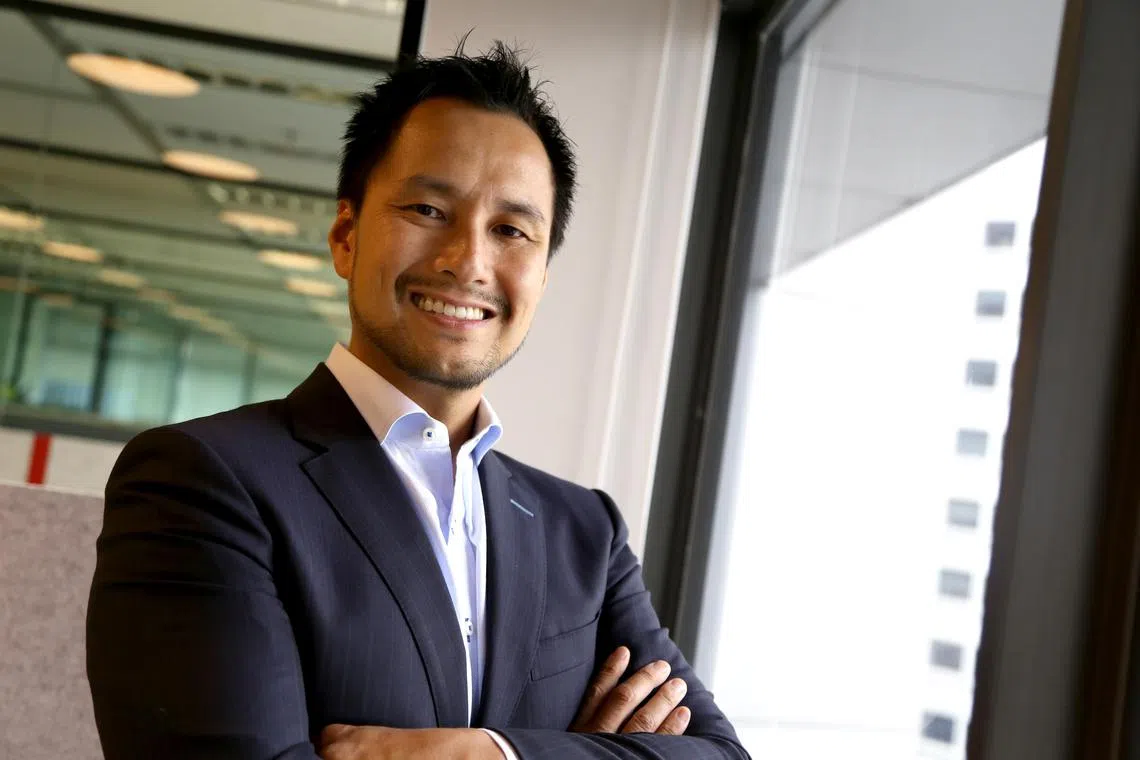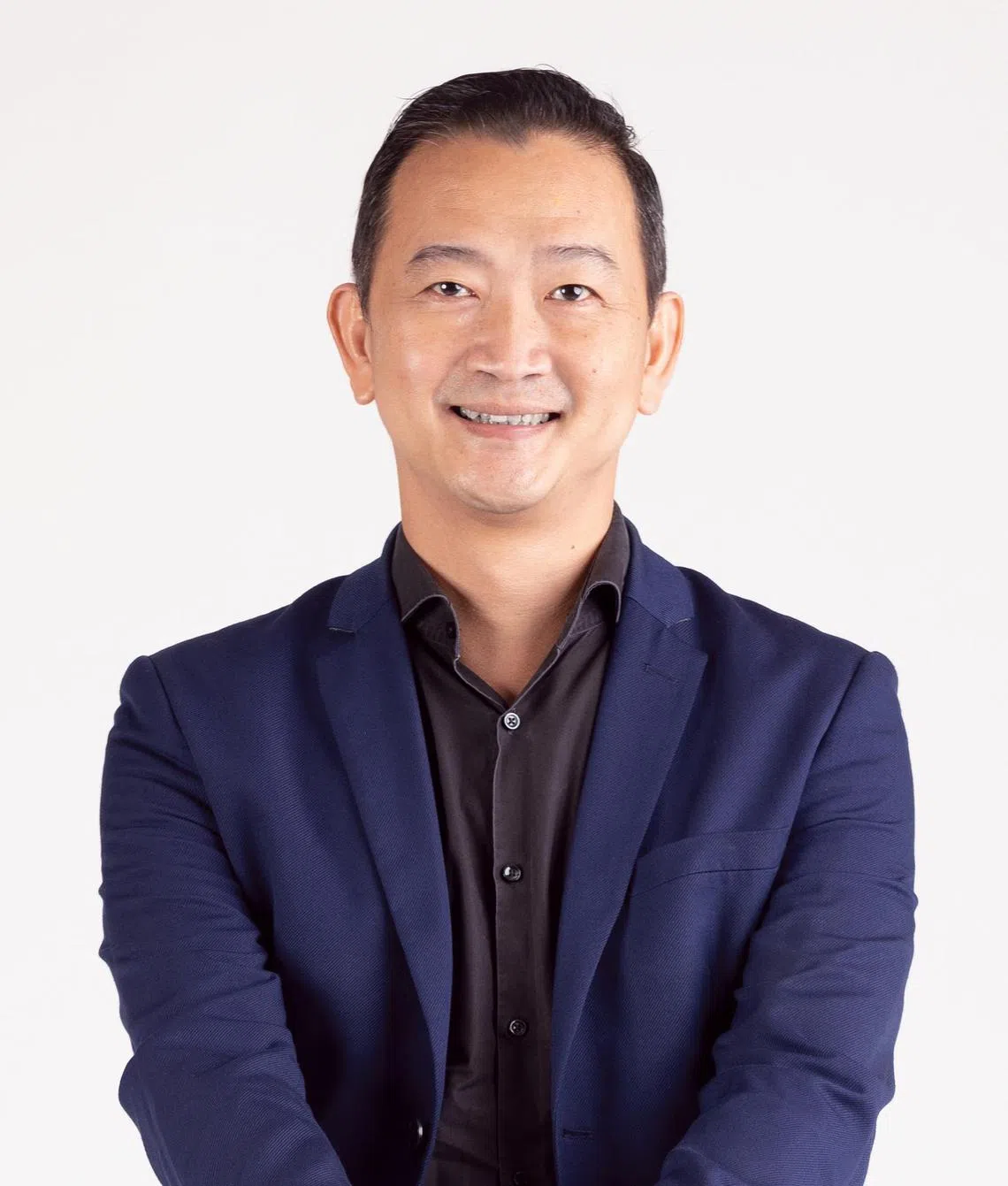Is Singapore rushing to stay ahead in digital asset hub race with spate of new licences?
Sign up now: Get ST's newsletters delivered to your inbox

Mr Adrian Chng, founder and chief executive of digital asset fund manager Fintonia Group, noted that MAS was earlier focused on building a new regulatory regime for the industry.
PHOTO: ST FILE
Follow topic:
SINGAPORE - At least five digital asset players have received nods from the Singapore regulator within a span of two weeks in October, prompting observations from some in the industry that the Republic is moving to stay ahead of the competition in the crypto hub race.
Market players noted that the full licences and in-principle approvals (IPAs) were given out ahead of the Singapore FinTech Festival week, a key event that starts on Nov 15, and the Hong Kong equivalent, which began on Monday.
Mr Adrian Chng, founder and chief executive of digital asset fund manager Fintonia Group, noted that the Monetary Authority of Singapore (MAS) was earlier focused on consultation papers and building a new regulatory regime for market players after the spate of crypto bankruptcies in 2022.
“I think its approach and response were mostly complete by the middle of this year, which gave more clarity to allow the processing of applications to begin again,” he said.
Mr David Tng, managing director of Web3 ecosystem builder TZ APAC, attributed the surge in IPAs and licences to more regulatory clarity.
The rules relating to safeguarding customer assets and ensuring stablecoin stability are seen as encouraging not only by crypto companies, but also by the broader financial ecosystem that is now more inclined to explore the blockchain sector, he added.
In the first two weeks of October, crypto exchange Coinbase, Sygnum Ripple
Sygnum and Ripple are among those that took a short time – only four months – to make the leap from IPA to full licence.
During the same period, exchange Upbit and liquidity provider GSR also received their IPAs.
Mr Chia Hock Lai, co-founder of think-tank Global Fintech Institute, believes the short time taken to make it to full licence from IPA could mean that both applicants and MAS are now more familiar with the process.

Mr Chia Hock Lai, co-founder of Global Fintech Institute, believes the short time applicants took to make it to full licence from IPA could mean that they and MAS are now more familiar with the process.
PHOTO: LIANHE ZAOBAO
The granting of licences to prominent names also reflects MAS’ approach to anchor digital asset players with strong value propositions and risk management capabilities, said Mr Chia.
In June, payment firm Circle Crypto.com
Mr Lasanka Perera, chief executive of exchange Independent Reserve, said licence application could be a lengthy process.
He said some players would have needed more time to make operational adjustments to meet MAS’ stringent requirements, such as no lending or staking, and no co-mingling of customer funds, which might have resulted in several licences being approved only at a later date.
Upbit had received exemption from MAS in 2020
“Having more licensed players is healthy for the industry as it creates more jobs, attracts investment into Singapore and gives customers more choice,” said Mr Perera.
Similarly, Mr Danny Chong, co-founder of decentralised protocol Tranchess, noted that the approach MAS has taken will help foster innovation and encourage the growth of the blockchain ecosystem.
Globally, regulators from other jurisdictions – including Europe, the United Arab Emirates, Hong Kong and, more recently, Australia – have moved to include crypto in their regulatory frameworks, said Fintonia’s Mr Chng.
Competition is everywhere, he said, adding that the MAS approach is consistent with the general global trend of giving clarity and rules to the industry.
The waiting period for approval can stretch up to 2½ years in some cases, and this reflects the meticulous scrutiny that these firms have to undergo, said Ms Anne-Sophie Cissey, head of legal and compliance at market-maker Flowdesk.
“The evolving regulatory landscape in Singapore, particularly in areas like custody services, is driving a growing number of companies to seek approval,” she said.
“As new regulations are discussed and refined, there’s clear anticipation that more and more businesses will join the queue, prompting the Singaporean regulatory authority to expedite its processes.”


